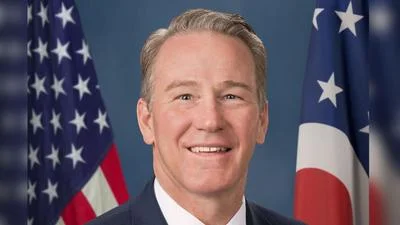Dean Rieck, Executive Director at Buckeye Firearms Association | LinkedIn
Dean Rieck, Executive Director at Buckeye Firearms Association | LinkedIn
On April 16, Director of National Intelligence Tulsi Gabbard released the Biden administration's "Strategic Implementation Plan for Countering Domestic Terrorism" (SIP). This document has raised concerns about the U.S. government's approach to the Second Amendment under the Biden administration, particularly the implications for gun owners.
The document states, “This Strategic Implementation Plan (SIP) provides direction and guidance for implementation of the National Strategy for Countering Domestic Terrorism” and acknowledges that "actual implementation of the SIP should be approached in adherence to the principles which seek to ensure that U.S. Government efforts to address [domestic terrorism] remain consistent with the rule of law and American values.”
It references actions such as “Rein in the proliferation of 'ghost guns'; encourage state adoption of extreme risk protection orders; and drive other executive and legislative action, including banning assault weapons and high-capacity magazines.”
The Biden administration's steps have included targeting so-called "ghost guns"—privately made firearms not imprinted with serial numbers. In April 2022, the Department of Justice approved ATF final rule 2021R-05F, related to firearm build kits, which was upheld by the Supreme Court. Critics argue that banning privately made firearms could violate the Second Amendment, as established by the ruling in New York State Rifle & Pistol Association v. Bruen (2022).
Action items in the strategic plan have prompted debate, including those concerning "extreme-risk protection orders" or red-flag laws, which proponents argue prevent violence but opponents say infringe on due process without a criminal conviction. The Biden administration directed taxpayer funds towards a red-flag law clearinghouse at the Johns Hopkins Bloomberg School of Public Health.
Additional concerns raise questions about weakening Second Amendment rights under the guise of combating domestic terrorism. The language within the SIP suggests a governmental effort to solidify norms of non-violent political expression and rejection of racism and bigotry.
Past instances cited by critics include the Biden FBI's alleged targeting of religious groups like devout Catholics under "domestic terrorism" pretenses, along with perceived political targeting dating back to the Obama administration’s 2009 DHS report on “Rightwing Extremism.”
Criticism places emphasis on allegations of overreach and misuse of a "domestic terrorism" context to persuade action on gun control measures, urging recognition of the federal government’s strategies impacting constitutional rights.






 Alerts Sign-up
Alerts Sign-up